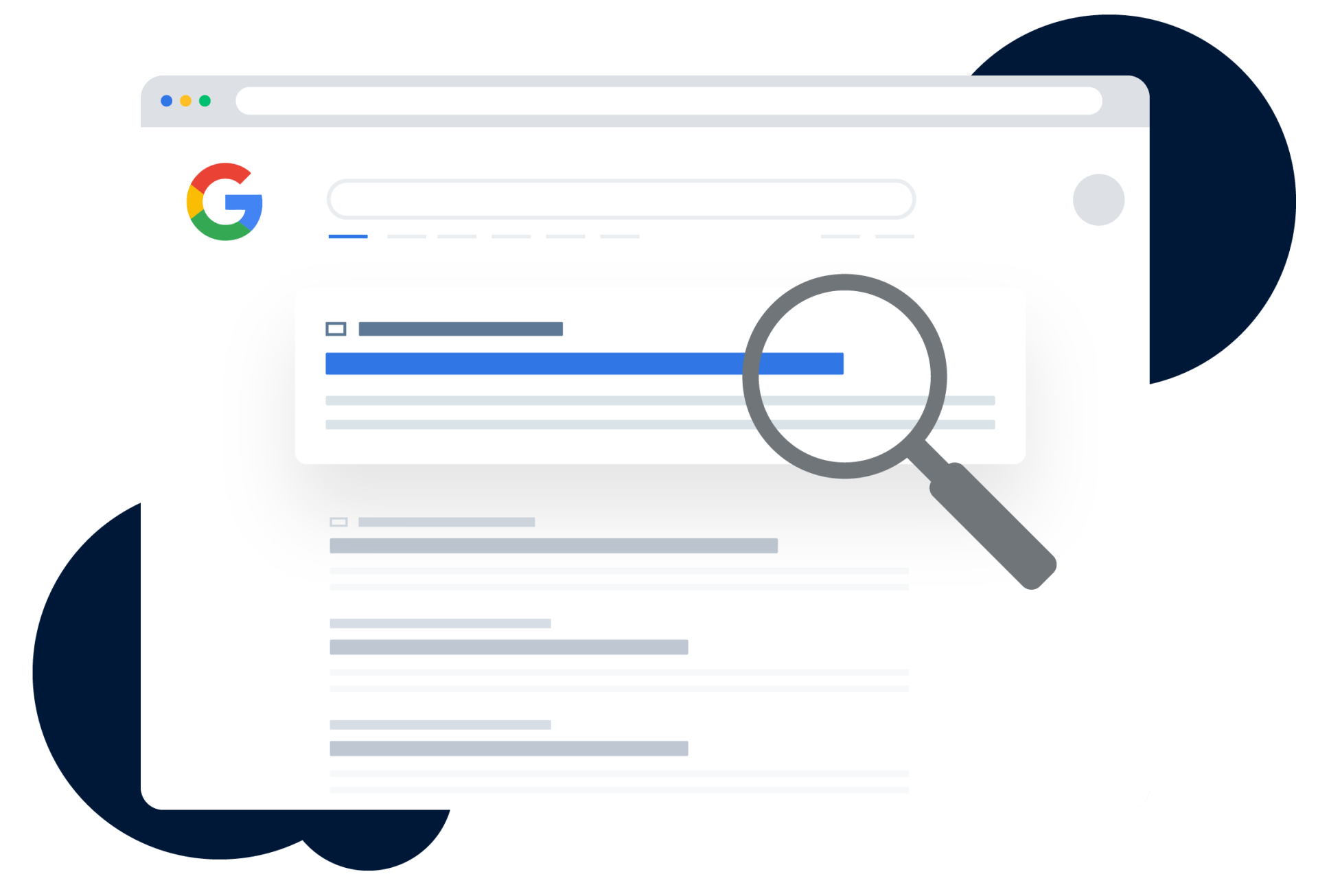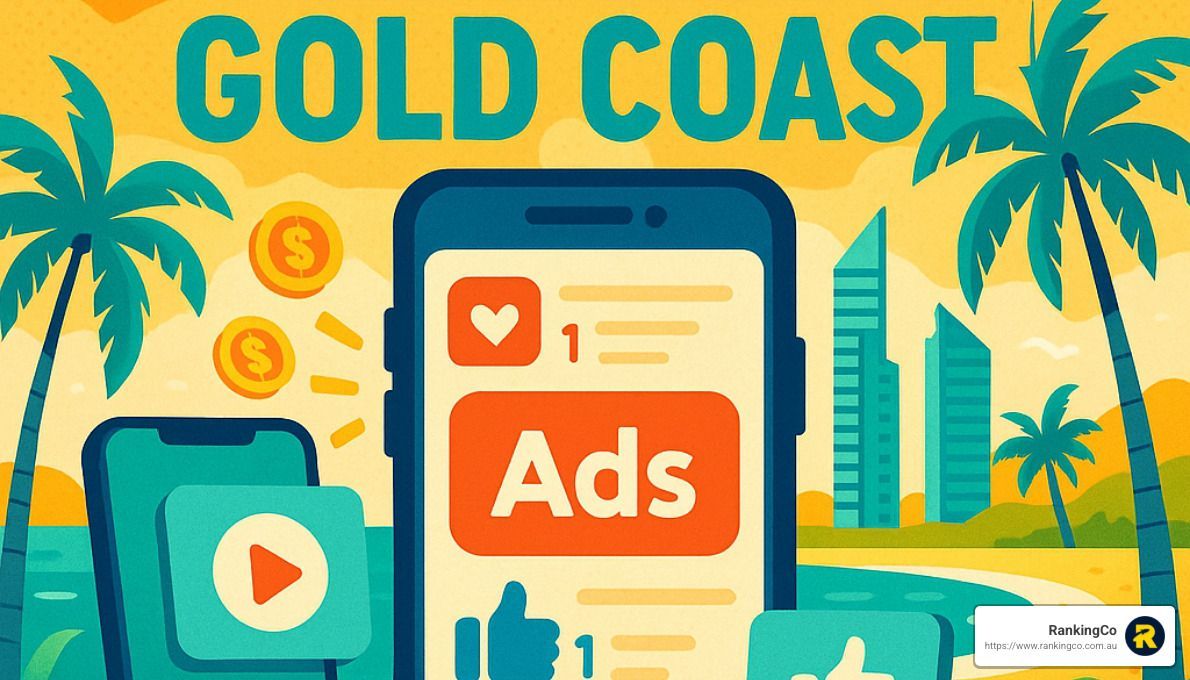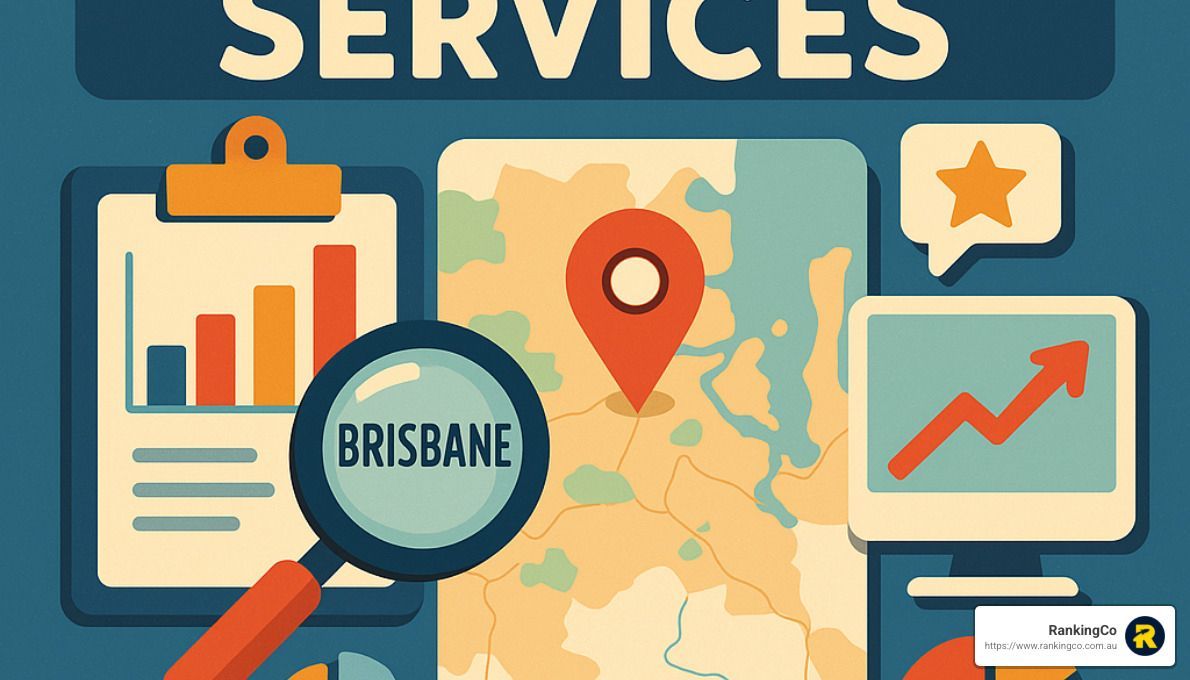The Ins and Outs of SEO: Learn About Search Engine Optimization
SEO, or search engine optimization, is all about making your website more visible when people search for terms related to your business on search engines like Google. Here’s what you need to know:
- SEO Basics: It's about improving website visibility in search engine results.
- Search Engine Optimization: Involves using various techniques to attract more visitors.
- Importance: Helps increase brand awareness, drive organic traffic, and boost sales.
Imagine a well-written book without a shelf. Without SEO, your website is like that book—full of valuable content but hard to find. SEO ensures your site isn’t just part of the web clutter but stands out for the right audience.
I'm Kerry Anderson, co-founder of RankingCo. With over 15 years in digital marketing, I've helped many businesses lift their SEO efforts. Let's explore this guide and open up the potential of your online presence.
Understanding SEO
When it comes to SEO, understanding the basics is crucial for success. Let's break down the key elements you need to know: search engine algorithms, keyword research, on-page SEO, and off-page SEO.
Search Engine Algorithms
Search engines like Google use complex algorithms to determine how websites rank in search results. These algorithms are like secret recipes, constantly evolving to provide users with the most relevant and high-quality content. They consider hundreds of factors, including the relevance of your content, the quality of your backlinks, and the user experience on your site. Staying updated with algorithm changes is essential for maintaining and improving your website's visibility.
Keyword Research
Keyword research is the foundation of any successful SEO strategy. It involves identifying the words and phrases that people use when searching for products or services related to your business. By understanding what your audience is searching for, you can tailor your content to meet their needs.
Here's how to do it:
- Identify Your Niche: Understand what your business is about and who your target audience is.
- Use Keyword Tools: Tools like Google Keyword Planner can help you find popular search terms.
- Analyze Competitors: See what keywords your competitors are ranking for and find opportunities to differentiate your content.
The goal is to find keywords with a good balance of search volume and competition, ensuring you can realistically rank for them.
On-Page SEO
On-page SEO refers to the practice of optimizing individual web pages to rank higher and earn more relevant traffic. It involves several key elements:
- Title Tags and Meta Descriptions: These are the first things users see in search results. Make them compelling and include your primary keywords.
- Header Tags (H1, H2, etc.): Use these to structure your content and make it easier for search engines to understand.
- Internal Linking: Link to other relevant pages on your site to help users and search engines steer your content.
- Content Quality: Ensure your content is informative, engaging, and custom to your audience's needs.
Off-Page SEO
Off-page SEO involves activities that happen outside your website but impact your rankings. It's primarily about building your site's reputation and authority through backlinks.
Here’s how to get started:
- Backlink Building: Aim to get links from reputable sites. Each link is like a vote of confidence in your content.
- Social Media Engagement: Share your content on social platforms to increase its reach and visibility.
- Guest Blogging: Write articles for other websites in your industry to build your authority and gain backlinks.
Off-page SEO is about creating a network of trust and authority around your website, making it more attractive to search engines.
By mastering these components of SEO, you'll be well on your way to boosting your website's visibility and attracting more organic traffic.
In the next section, we'll explore how SEO actually works, diving into the processes of crawling, indexing, and ranking by search engines.
How SEO Works
To truly understand SEO, grasp how search engines like Google operate. They perform three key tasks: crawling, indexing, and ranking. Each step is crucial for getting your content seen by users.
Crawling
Crawling is the first step in the process. Think of it as search engines sending out little spiders, called crawlers or bots, to explore the web. These crawlers scan websites, looking for new and updated content. They follow links from one page to another, gathering data about each page they visit.
Why is crawling important? If search engines can't crawl your site, they can't index it. Ensuring your site is crawlable is the foundation of good SEO. You can help crawlers by:
- Creating a Sitemap: This is a file that lists all the important pages on your website. It acts as a roadmap for crawlers.
- Fixing Broken Links: Check for and fix any broken links that could disrupt the crawling process.
- Using Robots.txt: This file tells crawlers which pages they can and cannot visit.
Indexing
Once a page is crawled, it's time for indexing. Indexing is like the search engine's way of filing away the information it has gathered. The engine analyzes the content, images, and other media on the page, storing it all in a vast database.
How can you ensure your site is indexed?
- Unique Content: Make sure your content is unique and valuable. Duplicate content can confuse search engines.
- Proper Use of Tags: Use title tags, meta descriptions, and header tags effectively. They help search engines understand your content.
- Alt Text for Images: Provide descriptive alt text for images, so search engines can "see" them.
Ranking
Ranking is where the magic happens. When a user types a query into a search engine, it quickly sorts through its index to find the most relevant results. The search engine uses complex algorithms to rank these results based on numerous factors, such as relevance, quality, and user experience.
Improving your ranking involves:
- Quality Content: Content that answers users' queries and keeps them engaged.
- Backlinks: High-quality links from other sites signal that your content is trustworthy.
- User Experience: Fast-loading pages and mobile-friendly designs contribute to a better user experience, which search engines love.
By understanding and optimizing for crawling, indexing, and ranking, you give your website the best chance of appearing in search results. In the next section, we'll dive into the different types of SEO and how they each play a role in improving your site's visibility.
Types of SEO
Understanding the different types of SEO is crucial for crafting an effective strategy. Let's explore the four main types: on-page SEO, off-page SEO, technical SEO, and local SEO.
On-Page SEO
On-page SEO involves optimizing the content and HTML source code of a page. This is the part of SEO you have full control over.
- Keywords: Use relevant keywords naturally in your content. These are the terms your audience is searching for.
- Title Tags and Meta Descriptions: These appear in search results and should be compelling and include your main keywords.
- Header Tags: Organize your content with headers (H1, H2, etc.) to make it easier for search engines and users to understand.
- Internal Links: Link to other pages on your site to keep visitors engaged and help search engines crawl your site.
Off-Page SEO
Off-page SEO focuses on activities outside your website that impact your rankings. This is about building your site's reputation and authority.
- Backlinks: These are links from other websites to yours. Quality matters more than quantity; links from reputable sites are valuable.
- Social Media: While not a direct ranking factor, social media can drive traffic and increase visibility.
- Brand Mentions: Being mentioned on other sites, even without a link, can boost your credibility.
Technical SEO
Technical SEO ensures that your site is easy for search engines to crawl and index. It's the backbone of a well-optimized site.
- Site Speed: Fast-loading sites provide a better user experience and can improve rankings.
- Mobile-Friendliness: Ensure your site works well on mobile devices, as more users search on mobile than desktop.
- Structured Data: Implement schema markup to help search engines understand your content better.
- Secure Site: Use HTTPS to protect user data and improve trustworthiness.
Local SEO
Local SEO is essential for businesses that serve specific geographic areas. It helps you reach local customers effectively.
- Google My Business: Claim and optimize your listing to appear in local search results and on Google Maps.
- Local Keywords: Use terms that include your location, like "Brisbane coffee shop."
- Customer Reviews: Encourage satisfied customers to leave positive reviews, which can boost your local rankings.
By focusing on these four types of SEO, you can create a comprehensive strategy that improves your website's visibility and performance. Next, we'll discuss how beginners can implement effective SEO strategies to boost their online presence.
SEO Strategies for Beginners
Beginning your journey with SEO can be a bit overwhelming. But don't worry, we'll break it down into simple steps focusing on user intent, content creation, link building, and technical SEO.
Understanding User Intent
User intent is all about understanding what your audience is looking for when they type a query into a search engine. There are four main types of user intent:
- Informational: The user is looking for information. For example, "How to plant a garden."
- Navigational: The user wants to find a specific website. For example, "Facebook login."
- Transactional: The user is ready to make a purchase. For example, "buy running shoes online."
- Commercial Investigation: The user is researching products or services. For example, "best laptops 2023."
Understanding these intents helps you tailor your content to meet the needs of your audience.
Content Creation
Content is king in SEO. Here's how you can create content that resonates with your audience and ranks well:
- Quality Over Quantity: Focus on creating valuable, well-researched content that answers your audience's questions.
- Use Keywords Wisely: Incorporate keywords naturally into your content. Avoid keyword stuffing, as it can hurt your rankings.
- Engaging Formats: Use a mix of text, images, and videos to make your content more engaging and shareable.
- Keep It Updated: Regularly update your content to keep it relevant and fresh.
Link Building
Building links is all about earning "votes of confidence" from other websites. Here’s how to start:
- Internal Links: Connect related pages on your own site. This keeps visitors engaged and helps search engines understand your site structure.
- External Links: Aim to get backlinks from reputable sites. Quality is more important than quantity here.
- Guest Blogging: Write articles for other websites and include a link back to your site.
Technical SEO
Technical SEO is like the engine of a car—it keeps everything running smoothly. Here are some basics:
- Improve Site Speed: Faster sites provide a better user experience and are favored by search engines.
- Mobile Optimization: Ensure your site looks good and functions well on mobile devices, as many users browse on their phones.
- Secure Your Site: Use HTTPS to protect user data and build trust.
- Fix Broken Links: Regularly check for and fix any broken links on your site to maintain a smooth user experience.
By focusing on user intent, creating high-quality content, building valuable links, and ensuring your site is technically sound, you'll be well on your way to mastering SEO. Up next, we'll answer some frequently asked questions to further clarify SEO.
Frequently Asked Questions about SEO
What does SEO mean?
SEO, or search engine optimization, is all about making your website more visible on search engines like Google. When done right, it helps your site rank higher in search results, which means more people can find you. This increased visibility can lead to more traffic, and ultimately, more customers.
How to do SEO for beginners?
Starting with SEO can feel like diving into a vast ocean, but here’s a simple guide to get you started:
- Keyword Research: Identify the words and phrases your audience uses to search for your products or services. Tools like Google Keyword Planner can help you find these keywords.
- Content Creation: Create valuable content that answers your audience's questions. Use your keywords naturally throughout your content but avoid overloading them.
- On-Page SEO: Optimize elements on your website like titles, headers, and meta descriptions to include your keywords. This helps search engines understand what your pages are about.
- Off-Page SEO: Work on building your site's authority by getting backlinks from reputable websites. This can be achieved through guest blogging or collaborations.
- Technical SEO: Ensure your website is fast, mobile-friendly, and secure. Fix any broken links and make sure your site is easy for search engines to crawl.
What are the four types of SEO?
Understanding the different types of SEO is crucial for a well-rounded strategy:
- On-Page SEO: Focuses on optimizing individual pages on your website. This includes using the right keywords, creating quality content, and optimizing HTML tags.
- Off-Page SEO: Involves actions taken outside of your website to impact your rankings. Building backlinks from other sites is a key component.
- Technical SEO: Ensures your website is set up for search engines to crawl and index it efficiently. This includes improving site speed, mobile optimization, and fixing technical issues.
- Local SEO: Aimed at improving your visibility in local search results. It involves optimizing your Google My Business profile and ensuring your business information is consistent across online directories.
With these basics in mind, you're ready to dive deeper into SEO. Next, we’ll explore more about how search engines work and what you can do to optimize your site further.
Conclusion
As we wrap up our journey into SEO, it's clear that this field is not just a buzzword but a vital component of any successful digital marketing strategy. At RankingCo, we specialize in leveraging SEO to help businesses, especially small ones, improve their online presence and reach their target audience more effectively.
Digital Marketing and Local SEO
Having a robust online presence is crucial for business success. Our expertise in digital marketing, combined with a focus on local SEO, ensures that businesses in Brisbane and beyond can connect with local customers who are actively searching for their services. Local SEO is about making sure your business is visible in local search results, which is critical for attracting nearby customers.
AI Technologies and SEO
We understand that the digital landscape is constantly evolving, and staying ahead means embracing the latest technologies. That's why we integrate advanced AI technologies into our strategies. AI helps us analyze market trends and user behavior more accurately, allowing us to craft effective campaigns that deliver results. By using the power of AI, we're able to adapt to changes quickly and set new benchmarks in performance.
Final Thoughts
SEO is an ongoing journey, not a one-time task. As search engines evolve and user behaviors shift, stay informed and adapt your strategies accordingly. At RankingCo, we are committed to helping our clients steer this ever-changing landscape and achieve their digital marketing goals. Whether you're just starting with SEO or looking to refine your approach, we're here to support you every step of the way.
By focusing on the unique needs of your business and utilizing cutting-edge tools, we aim to drive growth and success in the digital world. If you're ready to take your online presence to the next level, let's get started on this exciting journey together.















